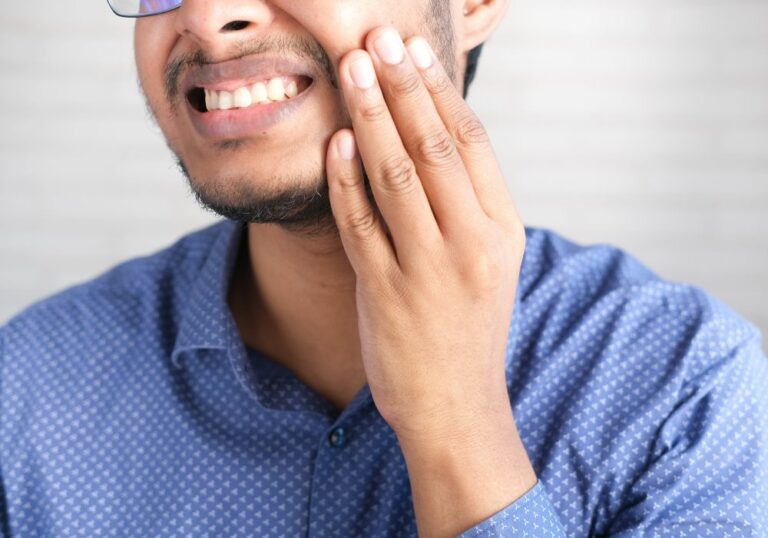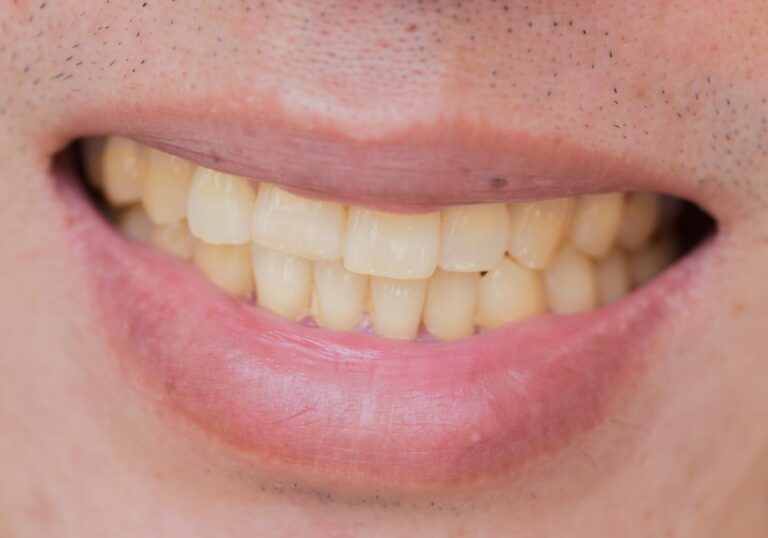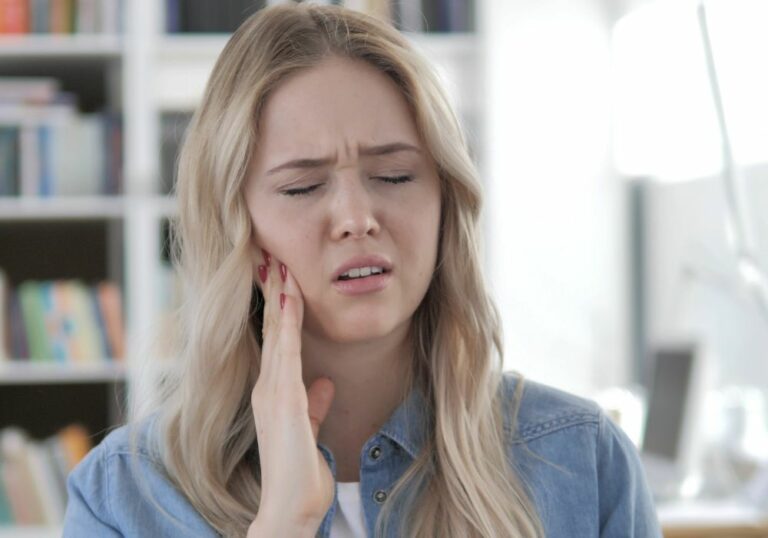Breastfeeding can be a wonderful bonding experience for you and your baby, but it can also come with some discomfort, including tooth pain. If you’re experiencing tooth pain while breastfeeding, you’re not alone. Many mothers go through this experience, and there are steps you can take to alleviate the pain.
One possible cause of tooth pain while breastfeeding is teething. As your baby’s teeth begin to come in, they may start to bite or clamp down on your nipple, causing pain. Additionally, the pressure from your baby’s mouth can exacerbate any existing dental issues you may have, such as cavities or gum disease. Fortunately, there are several strategies you can use to help prevent and alleviate tooth pain while breastfeeding.
Understanding Tooth Pain During Breastfeeding
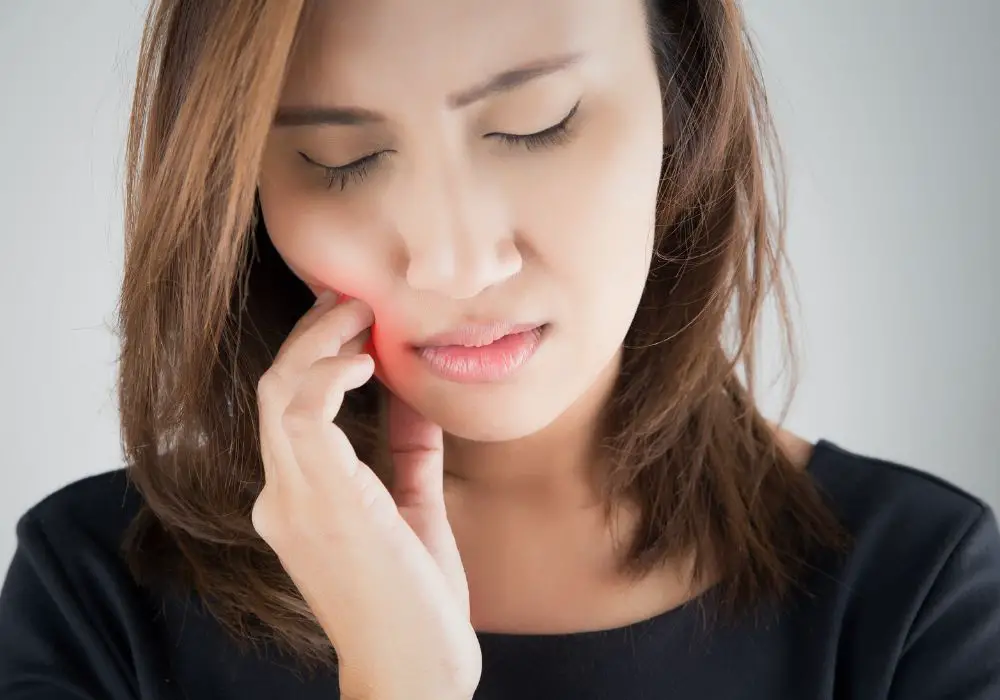
Breastfeeding is a natural and essential process for both you and your baby. However, it can be a painful experience if you are experiencing tooth pain while nursing. Tooth pain during breastfeeding can be caused by a variety of factors, such as:
- Teething: When your baby starts teething, they may bite down on your nipple, causing pain and discomfort.
- Positioning: Poor breastfeeding positioning can cause pressure on your teeth, leading to pain and discomfort.
- Dental issues: Dental problems like cavities, gum disease, or tooth decay can cause tooth pain while breastfeeding.
If you are experiencing tooth pain while breastfeeding, it is important to understand the root cause of the problem to find an effective solution.
To alleviate tooth pain while breastfeeding, you can try the following tips:
- Change breastfeeding positions: Try different breastfeeding positions to ensure that your baby’s weight is well supported when they are latched on. This can help reduce pressure on your teeth and alleviate pain and discomfort.
- Use a nipple shield: A nipple shield can help protect your nipples from your baby’s teeth and reduce pain and discomfort while breastfeeding.
- Massage your gums: Massaging your gums with a clean finger can help alleviate tooth pain caused by teething or dental issues.
- Use cold compresses: Applying a cold compress to your teeth and gums can help reduce inflammation and alleviate pain and discomfort.
In addition to these tips, it is important to maintain good oral hygiene practices, such as brushing and flossing regularly, to prevent dental issues that can cause tooth pain while breastfeeding.
By understanding the causes of tooth pain during breastfeeding and taking steps to alleviate it, you can continue to breastfeed your baby without experiencing unnecessary pain and discomfort.
Possible Causes of Tooth Pain While Breastfeeding
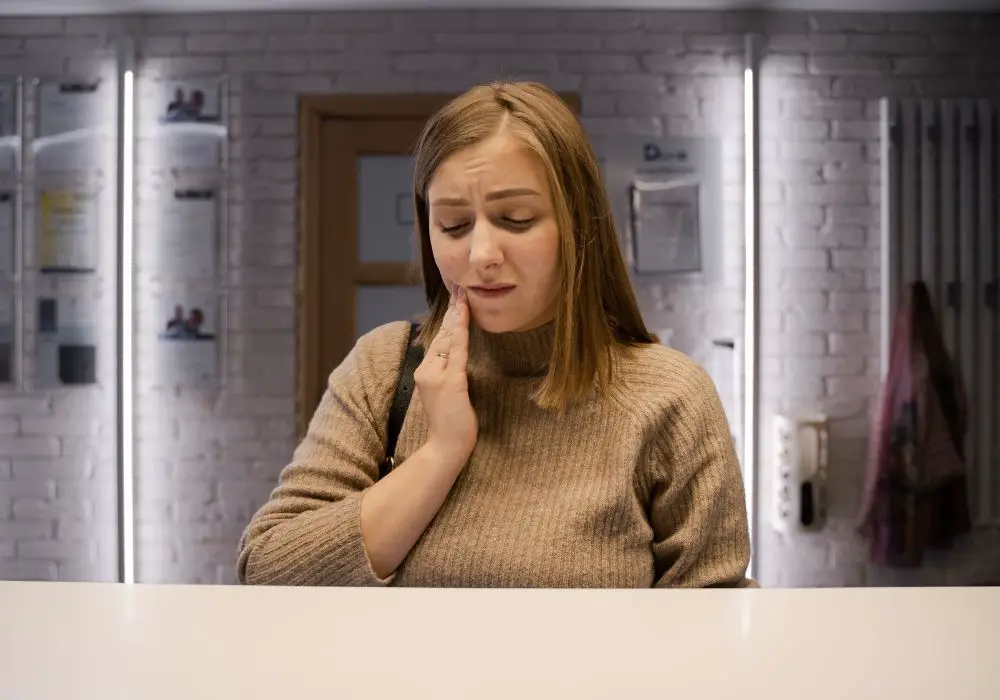
Breastfeeding is a natural and healthy way to feed your baby. However, it can sometimes cause tooth pain or sensitivity. Here are some possible causes of tooth pain while breastfeeding:
Hormonal Changes
During pregnancy and breastfeeding, your body undergoes hormonal changes that can affect your teeth and gums. These changes can cause inflammation, sensitivity, and even tooth decay. The hormone progesterone, for example, can cause your gums to become inflamed and bleed, a condition known as pregnancy gingivitis. This can lead to tooth sensitivity and pain.
Calcium Deficiency
Breastfeeding mothers need to consume enough calcium to support their own bone health and their baby’s growth. If you don’t get enough calcium in your diet, your body may take it from your teeth and bones, weakening them and causing tooth pain or sensitivity. It’s important to eat calcium-rich foods like milk, cheese, yogurt, and leafy greens, or take a calcium supplement if needed.
Teeth Grinding
Stress, anxiety, and sleep deprivation are common among new mothers, and they can lead to teeth grinding or clenching, a condition known as bruxism. This can cause tooth pain or sensitivity, as well as headaches, jaw pain, and other symptoms. If you think you may be grinding your teeth, talk to your dentist about getting a mouthguard to protect your teeth.
In summary, tooth pain while breastfeeding can have various causes, including hormonal changes, calcium deficiency, and teeth grinding. By taking care of your oral health and addressing these underlying issues, you can reduce or prevent tooth pain and enjoy the benefits of breastfeeding.
Preventing Tooth Pain During Breastfeeding
If you are experiencing tooth pain while breastfeeding, there are several things you can do to alleviate the discomfort. Here are some tips to help you prevent tooth pain while breastfeeding.
Maintain Oral Hygiene
Maintaining good oral hygiene is essential to prevent tooth pain while breastfeeding. Here are some steps you can take to maintain good oral hygiene:
- Brush your teeth twice a day with fluoride toothpaste.
- Floss your teeth daily to remove food particles and plaque.
- Use an antiseptic mouthwash to kill bacteria and freshen your breath.
- Visit your dentist regularly for checkups and cleanings.
Nutrition and Diet
Your diet can also play a role in preventing tooth pain while breastfeeding. Here are some tips to help you maintain a healthy diet:
- Avoid sugary and acidic foods and drinks that can erode your tooth enamel.
- Eat a balanced diet that includes plenty of fruits and vegetables, whole grains, and lean protein.
- Drink plenty of water to keep your mouth hydrated and flush out bacteria.
Stress Management
Stress can also contribute to tooth pain while breastfeeding. Here are some tips to help you manage stress:
- Practice relaxation techniques, such as deep breathing, meditation, or yoga.
- Get enough sleep to help your body and mind relax.
- Take breaks throughout the day to rest and recharge.
By following these tips, you can help prevent tooth pain while breastfeeding. If you continue to experience tooth pain, be sure to consult your dentist for further evaluation and treatment.
When to Seek Medical Help
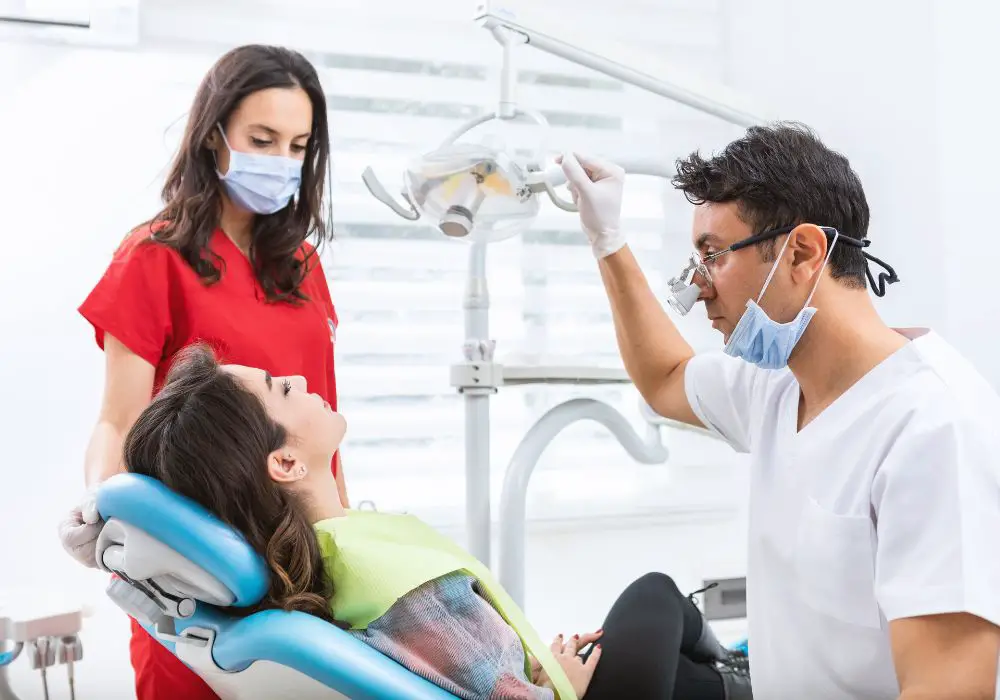
While breastfeeding, it is common to experience some discomfort or pain in your teeth. However, if the pain persists or becomes severe, it may be a sign of a more serious problem. Here are some situations in which you should seek medical help:
Persistent Pain
If you experience persistent pain in your teeth while breastfeeding, it may be a sign of tooth decay, gum disease, or other dental issues. It is important to see a dentist as soon as possible to prevent further damage to your teeth and gums. Your dentist may recommend a dental filling, root canal, or other treatments to alleviate the pain and restore your dental health.
Severe Pain
If you experience severe pain in your teeth while breastfeeding, it may be a sign of a dental emergency. You should seek medical help immediately if you experience any of the following symptoms:
- Severe pain that does not go away
- Swelling in your gums or face
- Bleeding in your mouth
- Difficulty breathing or swallowing
These symptoms may indicate a serious dental infection or other medical emergency that requires immediate attention.
Other Symptoms
If you experience any other symptoms in addition to tooth pain while breastfeeding, you should also seek medical help. These symptoms may include:
- Headaches
- Fever
- Nausea or vomiting
- Dizziness or lightheadedness
These symptoms may indicate a more serious medical condition that requires prompt medical attention.
In summary, while some discomfort or pain in your teeth while breastfeeding is normal, persistent or severe pain, or other symptoms may require medical attention. If you experience any of these symptoms, it is important to seek medical help as soon as possible to prevent further damage to your teeth and gums and to ensure your overall health and well-being.
Frequently Asked Questions
How can I alleviate tooth pain while breastfeeding?
To alleviate tooth pain while breastfeeding, you can try adjusting your baby’s position while nursing. Make sure your baby’s mouth covers as much of the areola as possible to avoid putting pressure on a specific area of your breast. You can also try using a warm compress on the affected area or taking over-the-counter pain relievers such as acetaminophen or ibuprofen.
Is breastfeeding linked to tooth decay in mothers?
Breastfeeding itself is not linked to tooth decay in mothers. However, poor dental hygiene and a diet high in sugar can increase your risk of developing tooth decay. It’s important to maintain good oral hygiene habits such as brushing and flossing regularly and avoiding sugary foods and drinks.
Can I have a tooth extraction while breastfeeding?
In most cases, having a tooth extraction while breastfeeding is safe. However, it’s important to inform your dentist that you are breastfeeding so they can take any necessary precautions. You may also want to wait a few hours after the procedure before nursing your baby to allow any medication to wear off.
What can I do about teeth clenching while breastfeeding?
Teeth clenching while breastfeeding is a common issue that can be caused by stress or tension. To alleviate this, try taking deep breaths and consciously relaxing your jaw while nursing. You can also try using a warm compress or taking a warm bath to help relax your muscles.
Why are my teeth feeling loose while breastfeeding?
Loose teeth while breastfeeding can be caused by hormonal changes in your body. This is a temporary issue and should resolve on its own once your hormone levels return to normal. However, if you are experiencing severe pain or discomfort, it’s important to see your dentist.
What remedies can help with wisdom tooth pain postpartum?
To alleviate wisdom tooth pain postpartum, you can try using a warm compress on the affected area or taking over-the-counter pain relievers such as acetaminophen or ibuprofen. You can also try rinsing your mouth with warm salt water to help reduce inflammation. If the pain persists, it’s important to see your dentist.

